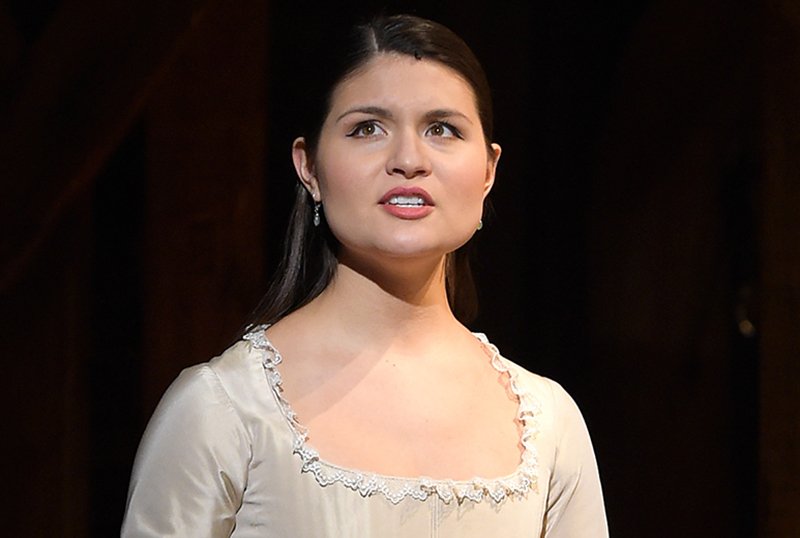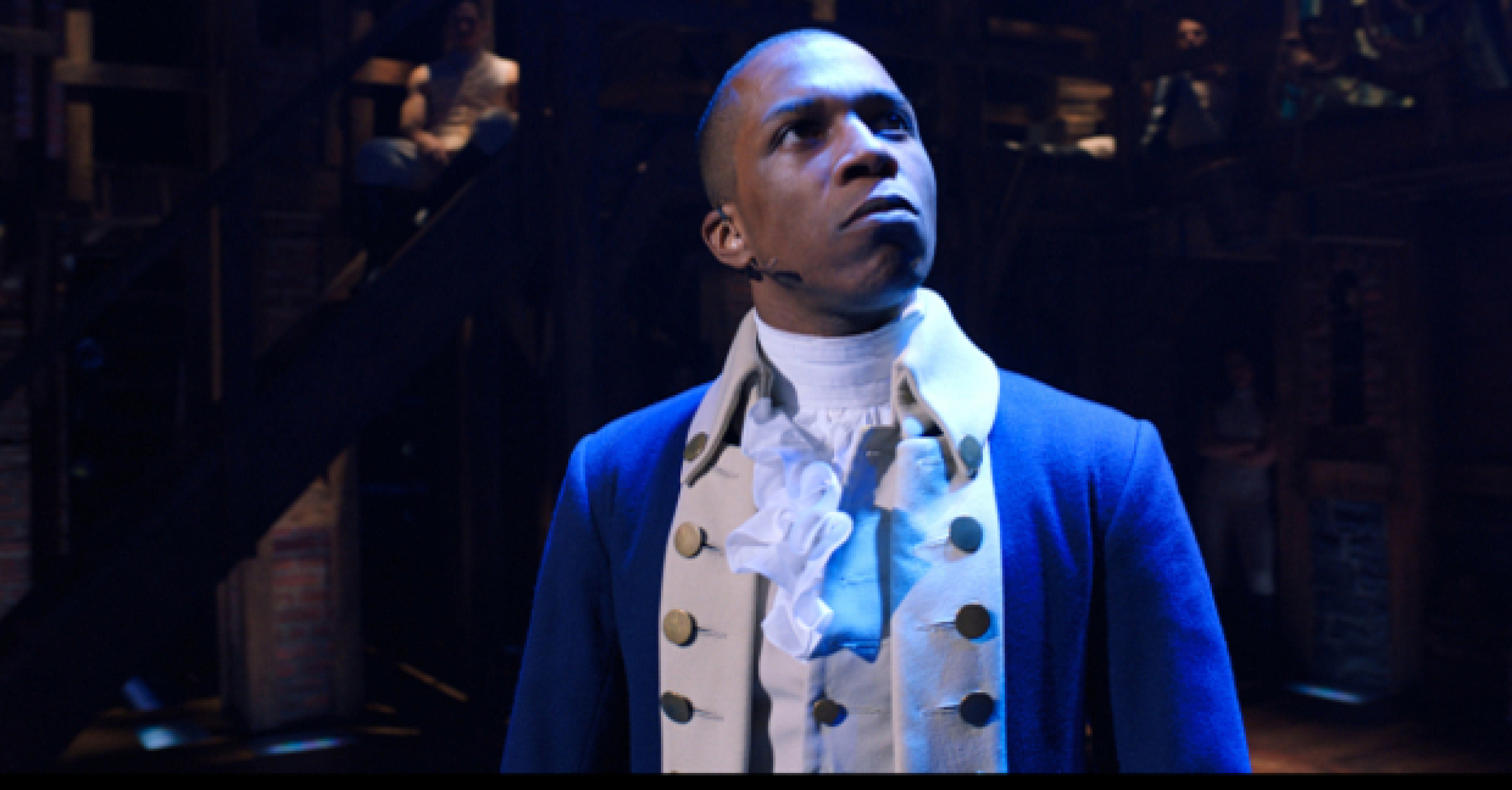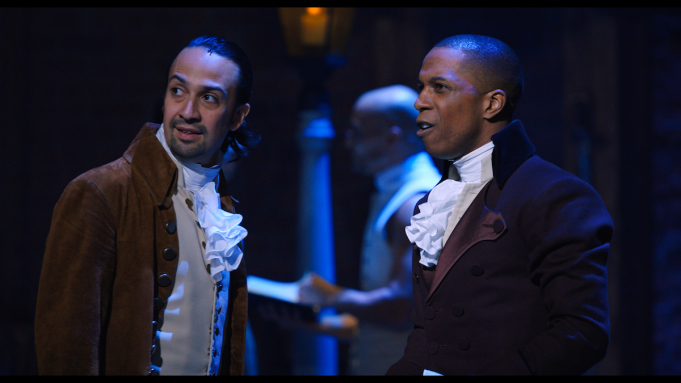Created by and starring Lin-Manuel Miranda, ‘Hamilton’ tells the story of Alexander Hamilton, a young man whose passion to do something for his country leads him to become one of the most monumental figures in its history. The retelling takes a modern tone, using hip-hop and pop style of music and casting people of color in the roles of white historical figures. While the entire show is a captivating ride, it is the final scene that creates an unforgettable impression on the audience. It leaves us with a question that makes us wonder about our own story and ends the show on a note that gives us some freedom to form some theories about it. If you haven’t seen the musical yet, head over to Disney+. SPOILERS AHEAD
Plot Summary
‘Hamilton’ follows the story of Alexander Hamilton, one of the Founding Fathers of America. It begins with his young years where he finds the purpose of his life in fighting for a free America. We see the different phases of his life, as he quickly rises up the ranks, the one where he meets his wife Eliza, and his complicated equation with Aaron Burr, the man who spends most of his life obsessing over how Hamilton gets everything that he wants and who eventually becomes the reason for Hamilton’s death.
Apart from all the things that made him a popular figure, it also focuses on all the things that threatened Hamilton’s hard-earned reputation. We see him feeling affection for his wife’s sister Angelica, who is also in love with him, and we find out about the affair that led to the publication of the Reynolds Pamphlet and essentially cost him the prospects of becoming the President of America. Above all, we witness the one thing that Hamilton worked his whole life for, an enduring legacy.
The Ending: What Does Eliza’s Final Gasp Mean?

While the life of Alexander Hamilton ends in a duel with Aaron Burr, who had considered Hamilton his life-long nemesis, the musical ‘Hamilton’ does not close the curtain until much later. In his final moments, Hamilton thinks about all the people he is going to meet on the other side. He thinks about his son, Phillip, and his mother, who had died while he was still a child. He also thinks about his wife, Eliza, and wishes to reunite with her someday, though asks her to take her time to get there.
Eliza goes on to live for fifty more years and, in that time, does all she can to keep her husband’s legacy alive. The question posed is: who lives, who dies, and who tells your story. From the moment Eliza’s life was tied with Alexander’s, she knew it was his story the world would remember. She knows who she married, and the only thing she wishes to be is a part of his narrative. That changes when his infidelity becomes public knowledge, and she doesn’t talk about Hamilton’s legacy or being a part of it until after he is dead.
In the final scene, Aaron Burr accepts that the world was big enough for both him and Hamilton and that he could have let go of the jealousy and created a place for himself without worrying that Hamilton had any influence over his life and actions. Now that he has let go of Hamilton, he doesn’t tell his story anymore. That responsibility shifts to other people, and eventually to Eliza, who not only willingly becomes the part of the narrative again but also takes control of it.

Throughout the movie, we find Hamilton, and other characters, obsessing over their legacy. Their actions are largely influenced by the thought of all that they would be leaving behind, not only for their children but also for their country. The reason that Hamilton writes like he is running out of time is that he worries that he will not have done enough before death comes knocking at his door. In the final scene, we see Eliza worrying about the same thing. Even after all her work- for the Washington Monument, against slavery, and establishing the first private orphanage in New York City- she worries if she has done enough. It is also during this time that she starts addressing it as “our story”, rather than his story and her being just a part of it.
One of the things to notice in her final song is that the whole time, her eyes are focused above, signifying that she is talking to Alexander who is in heaven now. She tells him about the Washington Monument and wonders how much more he could have done for the country if only he’d had more time. But when she speaks about the orphanage, she looks down, at the audience. She talks about the most important part of her legacy and feels confident that she is leaving behind something that will outlive her, much like Hamilton wanted for America. At this moment, she acknowledges the audience, the people who are benefiting from the battles that the Founding Fathers fought, who are the legacy they pushed themselves for. By seeing them, she sees that their story is being told and that their work lives on. After this, Hamilton calls out to her, and with her final gasp, the show closes.
Actress Phillipa Soo called it a moment of transcendence for Eliza, which can be interpreted in two ways. It could be the transcendence to another world, the one where she gets to meet her husband, her sister, and her son. It has also been interpreted by viewers as the breaking of the fourth wall, in which Eliza sees the audience and realizes that her story has been told after all, and that she is the one telling it. However, a similar action occurs only a few moments before it, as explained above. Also, in the final gasp, her gaze is directed above, at the place where her family is, not below, where the audience is. So, it is more likely to be her final breath.
Read More: Musical Movies Like Hamilton


You must be logged in to post a comment.